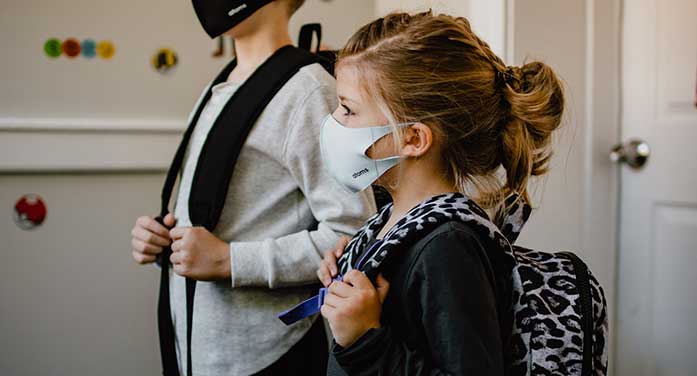 Sometimes it takes a crisis to make things clear. Consider the last two years of rolling pandemic school closures. It’s becoming increasingly clear that Ontario’s government education systems largely failed to serve more than two million students well.
Sometimes it takes a crisis to make things clear. Consider the last two years of rolling pandemic school closures. It’s becoming increasingly clear that Ontario’s government education systems largely failed to serve more than two million students well.
Calls for wholesale reform to Ontario education have begun and include revamping all kindergarten-to-Grade-12 curricula and a ‘back-to-the-basics’ approach to reading and math.
These have merit and are worth considering. But first, we need to recognize and address the basic structural failures and philosophical assumptions of current education policy. Without that step, we’ll just be slapping a Band-Aid on a broken bone.
Cardus has published an assessment of school closure policy that addresses these problems. It also considers why, overall, Ontario independent schools seem to have fared better in responding to school closures. We pose three questions to consider:
- Should in-person learning be designated an essential service?
- How can the voices of parents and guardians be more meaningfully included in decision-making?
- Should we move toward a more human-scale form of educational decision-making and governance?
The first question is really a call to consider whether any component of education is essential. Throughout the pandemic, the federal government maintained a list of services it deemed essential to the functioning of society that were approved to stay open – grocery stores and food manufacturing, for example.
Education never made the list, despite increasing calls to consider it an essential service and public commitments that schools should be “the last to close and the first to open.”
While formal designation as an essential service may be challenging to apply to education, it’s high time Ontarians considered whether essential qualities to education exist. If they do, the province needs to prioritize its students with a bill that reinforces in-person learning in the legislature.
| Keep an Eye on Ontario |
Considering education as fundamental to children’s well-being will inject such cliché phrases as “the leaders of tomorrow” with actual meaning.
Our second question deals with the inclusion of parents and guardians as key partners in their children’s education. Throughout the pandemic, parents were subjected to last-minute decision-making and poor communication from the province and school boards alike.
By contrast, recent polling indicates parents of independent-school students are more likely to demonstrate satisfaction with pandemic learning than their counterparts in government-run public schools. They’re also less likely to be worried about their children’s academic progress throughout the pandemic.
What’s at the root of these results?
Independent schools are an excellent case study in demonstrating how to engage parents in a robust partnership. Many independent schools are parent-initiated, born out of a desire for educational environments that are safe and nurturing for their children. As a result, these schools incorporate parents as critical stakeholders in educational decision-making. Educators often recognize parental expertise as a resource to tailor learning to each student’s needs. Every Ontario student deserves this.
The third question regards the necessity of a return to a more human-scale form of educational decision-making and governance. Over the past 25 years, Ontarians have watched successive governments centralize education decision-making in the name of efficiency, consolidating school boards and transferring decision-making power away from local school communities.
In contrast, most independent schools are small-scale community initiatives, prioritizing relationships and local decision-making. These are features of independent schools that all Ontario students deserve to benefit from.
The success of independent schools throughout pandemic learning and school closure is directly related to these features. The structural lack of these features has arguably weakened the quality and effectiveness of Ontario’s government-run public school system.
Teachers’ unions are undermining their own long-term viability by Michael Zwaagstra
Parents can no longer rely on the public system for their kid’s education
What does all this mean on the ground?
The possibilities are endless. Local schools could galvanize communities to engage in recovery efforts for their children: funding subsidies to engage local tutoring services, creating community engagement plans to understand local student needs, to welcome volunteers, access mental health services, create educational opportunities, and provide space for connection and relationship.
What could happen if public funding provided real opportunity for parents, community organizations, health care workers, educators and school leaders to sit around a table and commit to their youth?
It could transform lives.
Let’s not tinker at the edges. Instead, Ontario should assess its educational failures during the pandemic and innovate a new way forward.
Joanna DeJong VanHof is a researcher with Cardus and holds a master’s of Education in Educational Leadership and Policy from the Ontario Institute of Studies in Education. Cardus is a non-partisan think-tank dedicated to clarifying and strengthening, through research and dialogue, the ways in which society’s institutions can work together for the common good.
Joanna is a Troy Media Thought Leader. For interview requests, click here.
The opinions expressed by our columnists and contributors are theirs alone and do not inherently or expressly reflect the views of our publication.
© Troy Media
Troy Media is an editorial content provider to media outlets and its own hosted community news outlets across Canada.


